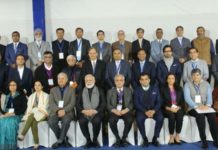
Two aspects that characterised AQ finances were its global sourcing — from the various Gulf nations — and its cyclical nature. The Islamic State runs on different parameters. Expert Howard J Shatz believed that despite the rumours that the group has “foreign patrons in Gulf states such as Saudi Arabia, Kuwait and Qatar there is precious little evidence that it ever depended on foreign largesse”. In 2005-06, the Islamic State was at the peak of its power in Iraq’s Anbar province. But only 5 percent of its revenues in the region came from donations, either raised locally in Iraq or from foreign sources.
Documents seized by Iraq and the US military show that the bulk of is’ money is local in nature and generated through the year by smuggling of crude oil. With control over a dozen oil fields and a number of oil refineries in Iraq and Syria, oil is sold in the two countries, and in Turkey and possibly Iran. To envisage the scale of these operations, Shatz estimated that the Islamic State raised $2 billion “with a smuggling operation based at the Bayji refinery in Iraq” between 2006 and 2009.
Islamic State has other sources. For instance, according to Shatz, the organisation behaves like a criminal gang. “It smuggles, it extorts, it skims, it fences, it kidnaps and it shakes down. Although supposedly religiously inspired, its actions are more like those of an organised criminal cult. To borrow from mobster Salvatore (Sammy Bull) Gravano, members in ISIS don’t get ahead just by being thugs — at some point you have to learn to be a racketeer as well,’” he explained.
However, in the areas which the is controls, it acts like a government. Therefore, it collects taxes in all forms, and also commissions in areas where it facilitates trade. “In the illegal markets the criminal organisation can often be regarded as the equivalent of the policy-maker and therefore, once the monopoly over coercion is relatively stable, its main interest consists in maximising the rents to be extracted from its territory,” says a book, The Economics of Organised Crime.
USES OF THE MONEY
AQ was believed to be a “miser” outfit that kept elaborate financial records to track each dollar it spent. It forced its operatives to also keep a tab on their expenses. According to the Commission’s staff report, its expenditure on key operations was also quite low. At the height of its activities, AQ used global money changers to transfer $1 million from the United Arab Emirates to Pakistan, and then used human couriers to transfer the cash into Afghanistan.
For the 9/11 attack itself, aq spent a mere $400,000-500,000. According to a paper titled ‘Terrorism Financing Methods: An Overview’ by Michael Freeman and Moyara Ruehsen, Khalid Sheikh Mohammed gave $10,000 each in cash to the 13 hijackers of the four planes, and $120,000 to Ali Abdul Aziz Ali, which was transferred through money exchangers to the terrorists. Another $36,000 was transferred by Ramzi Binalshibh and Mustafa al-Hawsawi to the hijackers.
Other AQ operations cost even less. The Commission’s staff report estimated that the expense on the 1998 US embassy bombing in East Africa was $10,000, the 2002 Bali bombing cost $20,000, and “potential maritime operations against oil tankers in the Strait of Hormuz” around $130,000.
“The actual operations themselves were relatively cheap, although these figures do not include such ‘overhead’ as training at camps, evaluation of trainees, and recruitment,” said the report.
In comparison, Shatz revealed that while the Islamic State was a “formidable fund-raiser”, it was simultaneously a “formidable spender”. He added that it “pays regular salaries to members based on family size and even has promised to maintain those payments if the member is killed or captured. When casualties are high, this can mean high personnel costs relative to active manpower.”
Johnston and Bahney explained that the Islamic State’s internal records showed that in 2005-06, “the rate (of salary) in Iraq’s Anbar province was $491 a year, with an additional $245 per year for each dependent. The group… helps its fighters with rent, medical expenses, legal costs and performance bonuses, all of which are audited to mitigate potential abuse. Taken together, its own documents show it has long invested in its organisation, growing its infrastructure base and incentivising recruits to join and existing members and their families to remain loyal.”

The two terrorism experts added that is also makes “long-term investments in state building. This, too, requires money that can be invested in administering controlled territory and establishing institutions to implement and sustain Sharia governance. In some areas, it is able to provide reliable electricity, access to clean water and serviceable infrastructure.” is also governs its territory to an extent, “paying salaries to civil servants, facilitating trade… and engaging in other forms of statecraft aimed at keeping populations content and passive.”
Obviously, apart from the above mentioned costs, the Islamic State has to maintain a sizeable army to fight against Iraqi, Syrian and American military, apart from Kurdish and other rebel groups propped up by the western nations. For this, the outfit requires huge numbers of modern and sophisticated weapons and equipment, apart from large amounts of ammunition.
FUTURE COURSE OF THE MONEY
In his testimony before the United States House of Representatives’ Committee on Financial Services in November 2014, Johnston speculated on how the Islamic State is likely to spend the huge surplus that it has generated over the past few years. He talked of four options:
• Expand its territorial base in Iraq and the Levant
• Grow its influence in other strategic parts of the Muslim world, like Pakistan and Afghanistan
• Fund attacks in North America and Europe
• Finance its members to provide services and maintain Sharia-based order in its territories
“Of the four options, the first and the last appears to be the most likely. ISIL’s top priority appears to be building an Islamic caliphate emanating from Iraq and the Levant. For now, ISIL is focussed primarily on controlling territory and establishing a viable caliphate in the region. It likely will spend a large share of its revenues on ‘state building’…” But it may simultaneously pursue the second and third for other reasons. Influence in the larger Muslim world can add legitimacy to the first option. An attack in the West can boost the group’s “standing among Jihadist elements worldwide and attract another wave of foreign Jihadis to fight with ISIL… ”
Clearly, it is imperative for the US and other western nations to attack the financial sources and assets of the Islamic State to prevent its expansion, growth and influence. However, the strategies they adopted to curtail and curb AQ, with their focus on international movement of the money, may not work in this case. Therefore, there is a clear, immediate and an urgent need to change tracks, and fight the Islamic State on both the military and financial fronts.












